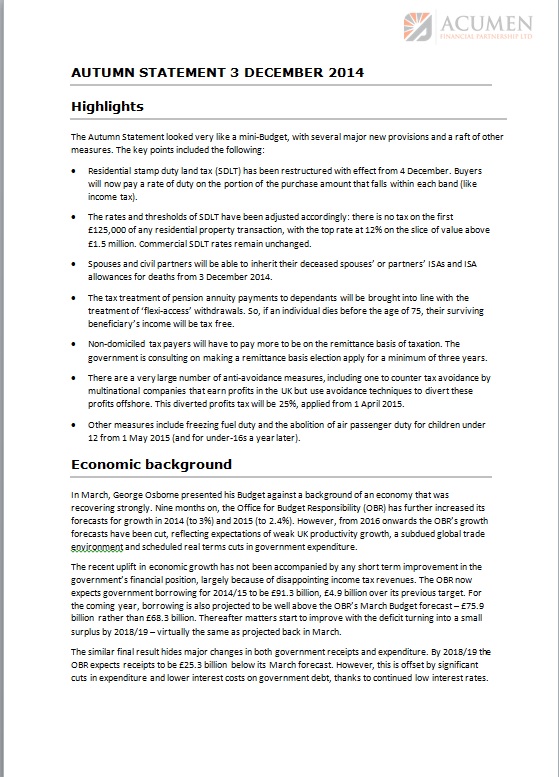When it comes to inheritance tax (IHT), the internet is awash with misconceptions, half-truths and falsehoods. This can make tax planning something of a minefield. But Acumen Financial Partnership is here to dispel common inheritance tax myths and provide practical advice about everything from tax-free gifting to getting a will. Read on to find out more.
There’s no escaping the fact that estate planning is a morbid topic of conversation. But tackle it you must if you’re to provide for your loved ones once you’re gone. If you don’t, you might find that your wealth is not only distributed by the state in unexpected ways, which can cause untold stress and anguish to those you leave behind, but it may also be subject to an inheritance tax bill from HM Revenue and Customs.
Neither situation is ideal.
So don’t leave your family’s financial future to chance, and certainly don’t believe everything you read on the internet if you want to ensure you don’t fall foul of IHT rules. Let’s dispel some common inheritance tax myths right here, right now, to ensure you’re fully clued up. Don’t forget that the most efficient way to ensure the best possible IHT outcome is to seek professional financial advice, which Acumen can provide.
Myth 1 – I don’t need a will because everything will go to my common law partner and we won’t have to worry about IHT.
Not true. Everyone should make a will. Not only does a will ensure the right people benefit (minimising family feuds), but it can also help to avoid any unnecessary IHT liabilities. Unmarried partners currently aren’t given any IHT exemptions. If you don’t draft a will, your estate will become subject to the law of intestacy in England and Wales. As such, your surviving partner is far from guaranteed any rights to your estate.
Myth 2 – I can only give away £3,000 a year to my loved ones.
Not true. If you’ve ever wondered how much money can be legally given to a family member as a gift, you can give away as much as you like. But only £3,000 a year is considered tax-free gifting. You could give away more if you wanted. However, anything above and beyond the exemption will be subject to the seven-year rule ie the gift falls outside your estate if you survive 7 years. Any unused part of the £3,000 exemption can be carried forward but strictly for one tax year only.
Myth 3 – I can give my adult children my home but live there until they claim it as their own.
Not true. This falls foul of the IHT rules because you are continuing to live there. Holding back some of the benefit for yourself is what’s known as a ‘gift with reservation of benefit’ (GWRB). In which case, your home will be deemed still part of your estate and be subject to IHT. However, if you lived at the address and paid market rent to your children, then this wouldn’t be considered a GWRB.
Myth 4 – If I give away everything my beneficiaries won’t need to pay IHT.
This isn’t entirely true. Granted, gifts and bequests to spouses, civil partners (unless they’re not UK domiciled) and charities are exempt from IHT. In theory, you can give away as much as you like to individuals with no immediate IHT liability but if you die within seven years there may be a tax liability. Gifts into trust or to a company can incur an immediate IHT liability, which can also increase if you die within that seven-year period.
For more information about inheritance tax planning and estate planning, or to speak to one of our advisers, please contact Acumen today by calling 0151 520 4353 or email us at info@acumenfinancial.co.uk.
Related Articles
-
Financial Planning
 November 18, 2014
November 18, 2014Planning your financial future
Have you ever wondered what an IFA does within a working day? Acumen Financial Partnership Direct.... -
News
 December 10, 2014
December 10, 2014Major announcements in the 2014 Autumn Statement
We have pleasure in sharing our summary of the key announcements in the Chancellor’s Autumn Statem.... -
Financial Planning
 December 22, 2014
December 22, 2014Top Tips to consider when choosing an IFA
When it comes to making life-changing financial decisions, seeking the services of an Independent Fi....

